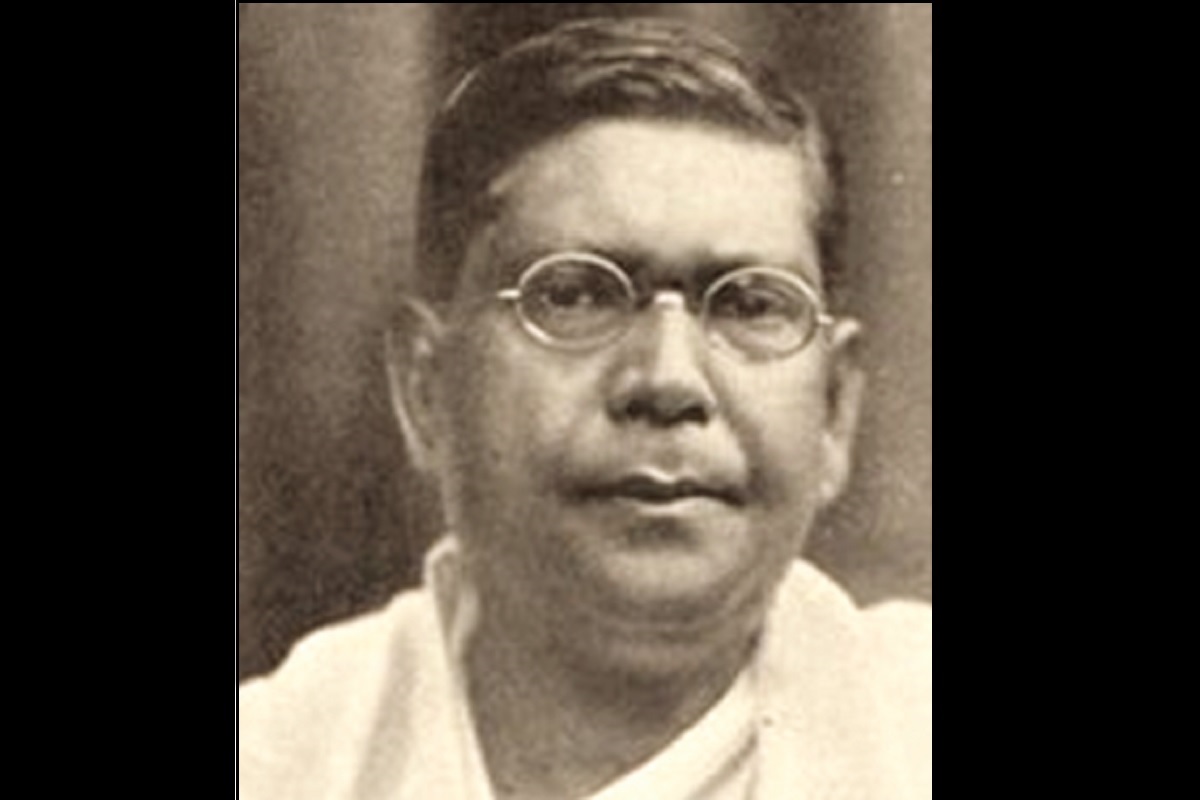Deshbandhu was a visionary and a realist. As a visionary he envisaged the emergence of a free united India and as a realist he devised careful planning for the same. His methods were appreciated by many including another stalwart and prescient politician, Maulana Abul Kalam Azad. His knowledge of the complex political spectrum cannot perhaps be underrated. Unfortunately Das passed away suddenly in 1925 leaving a void. The most towering leader of Bengal who had held disparate forces together was no longer around to advise his team. The conservative elements of the party assailed his position and the pact he had assiduously nurtured was repudiated at the Annual Conference of the Bengal PCC in 1926 which set the tone of division of Bengal twenty years after.
Another issue relating to the ideology of Das may be mentioned. He always maintained that there is no hostility between the ideal of Nationality and that of World Peace. The nationality which Das spoke about must not be confused with the concept of nationality as it existed in Europe then. Nationalism in Europe was an aggressive nationalism, a selfish nationalism, a commercial nationalism of gain and loss.
Advertisement
Tagore in his inspired vision of ushering in an era of international brotherhood, concord and amity and humanism actually accorded precedence to internationalism over nationalism, by which he meant national jingoism.
But India at that time being a subordinate, subjugated country, nationalism connotes the passion of patriotism, the overarching urge to liberate the nation from the scourge of subjection bringing in its wake demoniac suppression of rights and freedom of speech. Tagore has pleaded for the end of colonialism in the world but it is the specific and special responsibility of a freedom fighter to contribute to patriotic fervour. In this context the special emphasis on internationalism may subtly and physiologically, but indubitably, be a dampener of this elegant fight for breaking the shackles of bondage. On one occasion Swamiji compared truth to a ‘corrosive substance of infinite power’. Thus truth spares none, not even the Rishis.
Deshbandhu has been charged by some critics with superficial criticism of Tagore. This is patently unfair and unfortunate. The comment about Tagore in course of his deliberations is the plaintive outpouring of an anguished heart. It is quite understandable that Das being a poet himself, had been an ardent admirer of Tagore, the poet of poets. His adulation of Tagore is amply demonstrated by his liberal quotation from Tagore’s poem during his lectures.
In fact, to indulge and revel in the aesthetic extravaganza of art, dance and music in the transnational arena, be it in Santiniketan or elsewhere, and to tread on the rugged path of struggle against the despotic rule of a wily foreign ruler are but two sides of the same coin ~ a full flowering of human potentiality. It has been averred that irrespective of the legacy of Deshbandhu being short-lived or otherwise, the greatness of this son of India cannot and should not be undermined. It is a misfortune that the legacy was too robust for sustenance in this wretched country.
It will not be out of place to recount a little known anecdote indicative of Das’s quest for spiritual truth and his deeply religious bent of mind. On the recommendation of a venerated man of this country, Das had visited the remote village of Himayatpur in Pabna district of East Bengal to see a simple rustic Brahmin who was endearingly called by the people around as Thakur. In fact this Satsang Ashram at Himayatpur was earlier visited by Gandhiji who was highly impressed. Chittaranjan met that person. To his surprise he found that beneath his soothing simplicity he had an enigmatic personality and was a mine of knowledge and wisdom.
Thakur, as he was popularly called, seemed to be far superior to the ciassical schemata, to use the language of Alexi Carrol, the Nobel Laureate in his book, Man the Unknown. Das was enlightened in many ways; he attained some peace in his troubled mind and felt that he could see things around more clearly and with a new perspective. He found solace in the tranquil ambience of the village Ashram. Thakur wanted him to stay for some more time.
However, as per the doctor’s advice, Das had to visit Darjeeling for recovery of his health. But fate decreed otherwise. This great son of India breathed his last, much to the mortification and distress of his countrymen.
Sri Aurobindo expressed his profound sorrow in a significant statement ~ ‘Consummately endowed with political intelligence, constructive imagination, magnetism, a driving force combining a strong will and uncommon plasticity of mind, he was one after Tilak who could have led India to Swaraj’.
A reputed writer once told about Deshbandhu that his basic principle was summarised in the saying of Lord Krishna to the Pandava. Daridran Varo Kounteya (Oh sons of Kunti, your duty is to look after those who are poor and who have nothing.)
Deshbandhu served the poor. He sacrificed everything for his Motherland. Besides many other sacrifices, he donated all his property to open a school and a hospital for women. Today, that property has come up the Chittaranjan Seva Sadan which serves everybody. Rabindranath in one of his unforgettable essays stated, Jathartha Samalochana Puja. Following in his sacred footsteps, the fitting epilogue is Ittesang Bangmoyee Puja.
(Concluded)
(The writer is a retired IAS officer)











